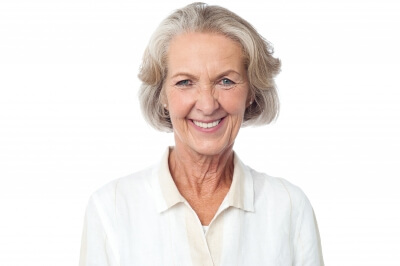When we’re going through a tough time, sometimes we feel like we’re the only ones who don’t have it together. But that’s not true—a lot of people go through dark days, often very similar to our own. A new study published by JAMA Psychiatry found that 14% of American adults suffer from drinking problems—that’s about 33 million people. If you struggle with alcohol, know that you’re not the only one.
To gather this data, researchers conducted face-to-face interviews with over 36,000 randomly selected people about their drinking behaviors. After months of interviews and analyzing all the data, they concluded that alcohol use disorder is a “highly prevalent…disabling disorder that often goes untreated in the United States.”
One of the saddest results the study found was that only 20% of the respondents that suffered a lifetime alcohol disorder were ever treated; 80% were untreated. Large numbers of people either don’t know they have an alcohol disorder or know they do but are afraid of the judgment they’ll receive if they seek treatment.
What these numbers show is that people need help, and there is absolutely no shame in seeking it. You are not alone—you are not the only person struggling with alcohol and you are not the only person in need of help.
The authors of the study finished by saying “Most importantly, this study highlighted the urgency of educating the public and policymakers about an alcohol use disorder and its treatments, destigmatizing the disorder, and encouraging among those who cannot reduce their alcohol consumption on their own, despite substantial harm to themselves and others, to seek treatment.”
About Residence XII
Residence XII offers DRUG REHAB FOR WOMEN as well as alcohol treatment that empowers women while leading them on their journey to recovery. At Residence XII, we welcome all women (+18) and aim to provide the highest quality INPATIENT and outpatient treatment for addiction available. Residence XII also offers a FAMILY PROGRAM aimed at helping family members and loved ones understand how to best help the patient in recovery. Contact us for a free DRUG AND ALCOHOL ASSESSMENT or to learn more about how we treat women with drug or alcohol dependency. Residence XII is State Licensed by CARF (Commission on Accreditation of Rehabilitation Facilities) and a member of the NAATP (National Association of Addiction Treatment Providers).
No matter your culture, race, gender, or level of wealth, drug and alcohol addiction can ruin relationships, especially within families. One unhealthy person has the power to rock a family’s stability, from their finances to the mental health of everyone around them. So while drug and alcohol abuse may seem like one person’s problem, when families are involved, it becomes everyone’s problem.
The temptation for many families is to ignore the issue and hope the addiction goes away on its own or never becomes that big of a problem. Too often, this leaves people without the help they need, and the problems only grow larger. Drug and alcohol addiction is always a problem. Here’s why.
What often starts innocently can slowly and uncomfortably become a larger problem. Addiction doesn’t just affect how much substance is consumed, but everyday behavior as well.
Addiction often makes people do things they might never otherwise do. An honest person might lie. A hardworking person might get fired. Families depend on each member being reliable and trustworthy, and addiction makes that harder to achieve.
Drug addiction can lead to:
- Family fights
- Upset neighbors and friends
- Job loss
- Unhealthy lifestyle
- Unhealthy psyche
Many people who are addicted to drugs or alcohol have no idea or make excuses for their behavior. They rarely seek out their own treatment, because they don’t see the problems their decisions cause for themselves or anyone else.
Because one person’s drug addiction affects the entire family, it’s important for the entire family to work on the issue together. Creating supportive and loving environments is hard work, especially in the face of addiction, but it’s all the more important in tough situations like these.
About Residence XII
Residence XII offers DRUG REHAB FOR WOMEN as well as alcohol treatment that empowers women while leading them on their journey to recovery. At Residence XII, we welcome all women (+18) and aim to provide the highest quality INPATIENT and OUTPATIENT treatment for addiction available. Residence XII also offers a FAMILY PROGRAM aimed at helping family members and loved ones understand how to best help the patient in recovery. Contact us for a free DRUG AND ALCOHOL ASSESSMENT or to learn more about how we treat women with drug or alcohol dependency. Residence XII is State Licensed by CARF (Commission on Accreditation of Rehabilitation Facilities) and a member of the NAATP (National Association of Addiction Treatment Providers).
(Image courtesy of imagerymajestic at FreeDigitalPhotos.net)
A study released last year shows an increase in the number of pregnant women who are using and abusing opiates during pregnancy. In the past 14 years, researchers have seen the number of pregnant women who abuse or are dependent on opioids jump 127 percent. Women 20- to 34- years old saw the largest growth with a jump of 162 percent from 1998 to 2011. Dr. Lisa R. Leffert, the lead author of the study and chief of obstetric anesthesia at Massachusetts General Hospital in Boston says that “Opioid abuse and dependence has grown dramatically in the general U.S. population, and our findings show that this epidemic extends to pregnant women.”
Addiction at any stage of life can be dangerous, but the risks of opiate addiction during pregnancy affect both mother and child. The data shows that if a woman abused or was dependent on opioids, she was nearly five times more likely to die during delivery or while hospitalized. There is also a higher likelihood of delivery by cesarean and an extended hospital stay than those who did not abuse narcotics. For the child, they are twice as likely to be stillborn, preterm (born early), and have intrauterine growth restriction (poor growth). There is also an increased risk (about three times more common) for placental abruption when the placenta separates from the wall of the uterus prematurely.
It is never too soon to get help. Studies show that opiate-related birth defects are typically seen when expectant mothers abuse drugs between the fourth and tenth weeks of pregnancy. “Given the rapid rise in opioid abuse and dependence in these patients, there is an urgent need to understand the link with bad outcomes and to develop interventions to help prevent them,” said Dr. Leffert.
About Residence XII
If you, or someone you know, are pregnant and battling an opiate addiction, then we are here to help. Residence XII offers DRUG TREATMENT that helps to empower women while leading them on their journey toward recovery. At Residence XII, we welcome all women (+18) and aim to provide the highest quality INPATIENT ALCOHOL TREATMENT available. We provide FREE ASSESSMENTS and references for women seeking more information about alcohol dependency. Residence XII also offers OUTPATIENT ALCOHOL TREATMENT PROGRAMS and FAMILY TREATMENT PROGRAMS. Residence XII is State Licensed by CARF (Commission on Accreditation of Rehabilitation Facilities) and a member of the NAATP (National Association of Addiction Treatment Providers).
For women going through recovery, there will be good days and bad days. Here at Residence XII, we spend time talking through ways to stay on the path, but it’s hard to stay positive in recovery sometimes. We all have those days. We’ve outlined a few tips to try and help create positive thinking and never forget that support groups are here to help. You can always reach out or come to one of our events.
- Talk to your family and friends – No woman is an island. Your support group is there for a reason and they are behind you 100%. If you’re having a bad day, then make time to chat with one of the people who inspire you. Positive energy can be contagious, so catch it from those around you.
- Start new activities – Many patients have told us that trying to pick up old hobbies or activities can sometimes tempt them to consider drinking again. During your recovery, especially in the first few months as you’re continuing to adapt to your new sober life, it’s best to get out and explore new hobbies and activities. Take up a cooking class to help you eat healthier or join a meditation group to help you focus your mind. There are wonderful groups on Meetup.com and free or low-cost classes available in the community.
- Keep an appreciation journal – One of the easiest tricks to staying positive is to make sure that when you have those great days and great moments, you take the time to write them down or write about your feelings in an appreciation journal. Having something concrete that you can reference when you’re having a bad day, can help re-focus your energy and keep you positive.
- Help others – It’s hard to stay negative when you’re helping your community. Volunteer opportunities abound in our area. Whether you want to help women going through similar situations, care for local animals, tutor children, or find another option that ignites your passion, there are great volunteer activities available.
- Be forgiving of yourself – One of the best ways to stay positive is to not let yourself focus on the negative. As Alexander Pope once wrote, “To err is human; to forgive, divine.” Know that there will be good days and bad, but that you are strong and can work through them.
About Residence XII
Residence XII offers DRUG TREATMENT that helps to empower women while leading them on their journey toward recovery. At Residence XII, we welcome all women (+18) and aim to provide the highest quality INPATIENT ALCOHOL TREATMENT available. We provide FREE ASSESSMENTS and references for women seeking more information about alcohol dependency. Residence XII also offers OUTPATIENT ALCOHOL TREATMENT PROGRAMS and FAMILY TREATMENT PROGRAMS. Residence XII is State Licensed by CARF (Commission on Accreditation of Rehabilitation Facilities) and a member of the NAATP (National Association of Addiction Treatment Providers).

Recently a study about middle-aged women’s drinking prompted a look into alcoholism later in life and the causes behind it. New data shows that retired women are also at a higher risk for alcoholism, for slightly different reasons.
News outlet Daily Mail recently looked at study results that showed more retired women are undergoing alcohol addiction treatment. Data from New Public Health England points to a 65% increase in alcohol addiction rehabilitation for women over sixty, Daily Mail found.
Lifestyle Changes
While middle-aged women are often juggling stressful changes around their home and family lives, retired women can experience a sharp decrease in professional responsibilities that opens up the opportunity for increased drinking. Daily Mail referenced the observations of psychiatrist Dr. Paul McLaren, who noted the absence of job responsibilities could help trigger alcoholism.
A shared factor between retired and middle-aged women’s drinking habits is the likelihood to drink consistently, rather than heavily yet infrequently. While occasional heavy partying can lead to alcohol dependency, frequent drinking can also become dangerously habit-forming. Whereas drinking for younger women is more recreational, drinking for older women can become a coping mechanism or a significant part of their everyday life.
Alcoholism Treatment in Retirement
Dr. McLaren concluded an important reason why alcoholism in retirement should not be overlooked: “Because older women don’t necessarily fit the stereotypes people hold about alcohol misuse, and because they often keep their drinking hidden, there just aren’t enough services out there to offer them the help they need.” It was this very issue that researcher Hanna Watling hoped to address with her study of alcohol use in middle-aged women.
Daily Mail also cautions that women aged 60-64 are at high risk for breast cancer, which escalates with drinking. BreastCancer.org also confirms the link between alcohol use and breast cancer in their research, advising that just three alcoholic drinks per week amplify the risk of breast cancer by 15%.
Senior women should be aware of the threat of alcoholism despite having what appears to be a more stable lifestyle. To prevent, treat, or manage alcoholism, retired women should monitor their drinking habits for signs of dependence and seek help immediately, before their health is compromised.
About Residence XII
Residence XII offers DRUG TREATMENT that helps to empower women while leading them on their journey toward recovery. At Residence XII, we welcome all women (+18) and aim to provide the highest quality INPATIENT ALCOHOL TREATMENT available. We provide FREE ASSESSMENTS and references for women seeking more information about alcohol dependency. Residence XII also offers OUTPATIENT ALCOHOL TREATMENT PROGRAMS and FAMILY TREATMENT PROGRAMS. Residence XII is State Licensed by CARF (Commission on Accreditation of Rehabilitation Facilities) and a member of the NAATP (National Association of Addiction Treatment Providers).
(Photo by stock images via FreeDigitalPhotos.net)

Australian researcher Hanna Watling has been focusing on statistics of middle-aged women who drink. ABC News Australia reports on Watling’s research and why middle-aged women’s drinking habits could be dangerous.
Watling’s goal is to determine why middle-age is the period when women drink most. Part of Watling’s research involved offering an online survey to Australian women between 45-59 who drank alcohol a minimum of once in the past 30 days. The intent is to discover what is behind the demographic’s drinking habits and potentially provide more relevant alcohol treatment.
Effects of Alcohol Use
According to ABC News Australia, Watling points out that in some cases, women who upped their alcohol consumption “more than tripled their lifetime risk of death from alcohol-related diseases.” The trend toward adult drinking is concerning because although middle-aged women have fewer drinks at a time, alcohol makes an appearance at the table more often. Consistent drinking can become habit-forming, and although the article doesn’t speak to alcoholism directly, Watling thinks the research findings could better inform “interventions” for women affected by alcohol use.
Symptoms of Alcoholism?
Recurrent drinking can signal a substance abuse problem. Hanna Watling speculates drinking might become either routine or stress relieving for women.
For women in their 40s and 50s, life is heavily marked by transition. Physically women transition through menopause, and relationally women in this age become empty nesters, restructuring their home and social lives. Does the stress of all these changes cause a need for reducing tension? Past research notes it could be possible. Or are women who have reached a few decades of life experience simply more comfortable with their drinking habits and less concerned with restricting use? It doesn’t seem clear yet whether these women are experiencing alcoholism or simply on the edge of a potentially destructive trend.
Regardless of the findings from Hanna Watling’s current research, the focus of her study brings awareness to a specific age group that might be more susceptible to substance abuse.
About Residence XII
Residence XII offers DRUG TREATMENT that helps to empower women while leading them on their journey toward recovery. At Residence XII, we welcome all women (+18) and aim to provide the highest quality INPATIENT ALCOHOL TREATMENT available. We provide FREE ASSESSMENTS and references for women seeking more information about alcohol dependency. Residence XII also offers OUTPATIENT ALCOHOL TREATMENT PROGRAMS and FAMILY TREATMENT PROGRAMS. Residence XII is State Licensed by CARF (Commission on Accreditation of Rehabilitation Facilities) and a member of the NAATP (National Association of Addiction Treatment Providers).
Recovery is an on-going process that takes both time and effort. Help keep on track with these tips for creating a healthier, richer life full of the things that you love. Women in recovery have the opportunity for shaping a bigger, brighter future as they try new experiences and realize the many possibilities available to them.
1.) Integrate Exercise
Exercise has been proven to be mood-lifting and help create feelings of balance. Beginning an exercise program can also be a good way to create structure during a time of growth or transition, such as recovery. Women in recovery have many options to incorporate exercise in their lives, from beginning a neighborhood walking or running routine, to joining a gym. Those who want to avoid traditional gyms can try a yoga, Pilates, Zumba, barre, spinning, or CrossFit class for a refreshingly different workout. Many gyms will offer guest passes for free or a small fee so potential members can try out the facility.
2.) Eat Healthily
An easy way to begin eating more healthy without having to follow or research a strict diet is to begin adding more fruits and vegetables in meals and snacks, drinking more water during the day, and reducing sweets and processed or fast foods. Eating to feel better also means looking at individual needs—women who are gluten or lactose intolerant or diabetic need to focus on eating to accommodate their bodies’ needs. Paying attention to the body’s needs also helps increase awareness and improvement of unhealthy patterns: some women in recovery might notice themselves eating out of boredom or anxiety, while others might realize they accidentally skip meals.
3.) Explore Hobbies
Many women in recovery find crafts and art-making to be stress reliever, allowing them to focus on the present moment. Craft projects can be a great way to build self-confidence and self-expression: the act of creating is empowering. Hobbies don’t have to focus on décor and accessories; they can also simply mean the chance to learn a new skill that adds enrichment. Women who participated in hobbies in the past can rediscover them again, or start a new hobby.



